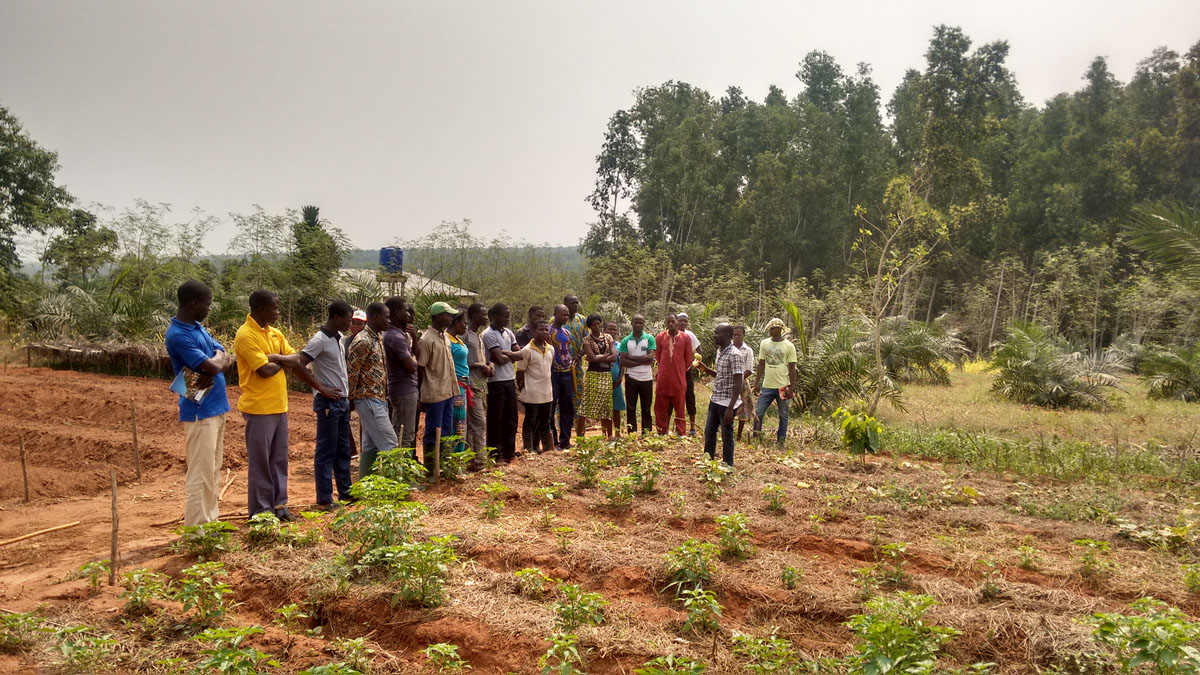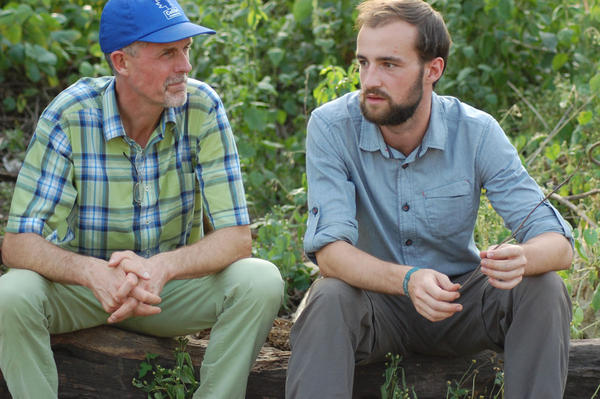From Benin to Tanzania
He worked in Benin for Collibri Foundation. Today, Thibault Geerardyn is trying to make a difference in Tanzania for project 'Wanted: food for the future'.

As a student in International North-South Cooperation at UCLL, Thibault did a 6-month work placement in our rice project in Benin in 2016. At Uniriz-C in Glazoué, he coached and evaluated three groups of young rice farmers who took a training at the Ferme SAIN training centre.
At work with Vredeseilanden
During this work placement, Thibault also applied for the position of Co-ordinator of food innovation projects in the South with Vredeseilanden from an Internet café. A job cut out for him according to what he says. In the framework of project 'Wanted: food for the future' Thibault is now setting up a co-creative project in Tanzania. The purpose of this project is to give young people new chances in sustainable agriculture to look for nutritious products with a small impact on the environment.
Wanted: food for the future
That is the goal of this unique project. With the province of Flemish Brabant, Vredeseilanden (Rikolto), Colruiyt Group, KU Leuven and UCLL, Food for the future is looking for products to feed the growing world population in a sustainable way. The 5 partners are therefore setting up 3 food chains for quinoa, pulses and seaweed. They are also setting up co-creative projects in Peru, Indonesia and Tanzania. In the latter country, Thibault can set up the project.

Sustainable entrepreneurship in Tanzania
MO* magazine was also curious about Thibault's role in 'Food for the future'. This is what he told the worldwide magazine about the co-creative project: "Our goal is to inspire and stimulate corporate social responsibility. We can do this by stimulating co-creation, a cooperation in which all participants influence the process. The heart of a co-creative project is dialogue, enthusiasm, decisiveness and focus on the result."
"We challenge young people to find solutions. These solutions can be anything, from improved packaging and transport to innovations in production and processing methods. As long as they favour sustainability, ecologically, socially and economically. I visited students in several different disciplines - bookkeeping, business development, agriculture - and told them about the project."
Project gaining momentum
"After a difficult start, I met the people of GECOSO, a local company that is working with organic regional products. We really hit it off and the project soon started to accelerate. Together, we drew up a four-week programme that would be running simultaneously in two regional capitals: in Arusha, a city in a mountainous region in the North and in Mwanza at Lake Victoria."
"After the project we hope to build a network of young people, who can share experiences. These different needs and necessities are precisely what is interesting in such a network. It allows groups from different cultures to learn from one another."
2018: first results
'Food for the Future' will stop at the end of 2018. By then, Thibault and the young Tanzanians will have elaborated a few innovations that will, in their opinion, offer an answer to the global food problem. This is their contribution to a common goal: fair food for everyone from their own, local context.
Curious about what will be on your plate in 2050?
Read all about it on voedselvoordetoekomst.be.
